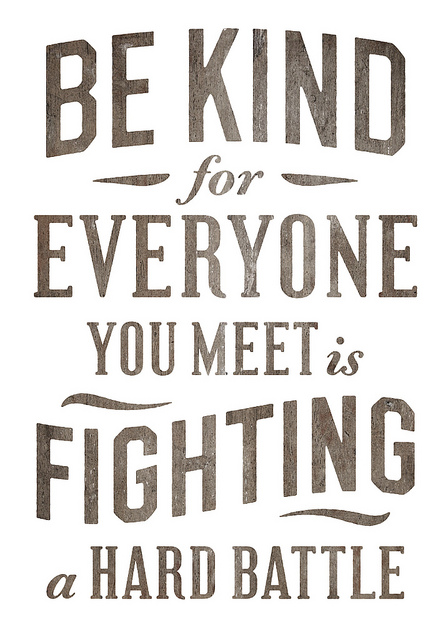Welcome to the third installment of my answers to the Proust Questionnaire, as found over at Vanity Fair. You can answer it for yourself, and they will come up with a hilariously inaccurate celebrity match for you. Enjoy that.
There are bits and pieces where this feels awfully self-indulgent, especially the ones where I get to dig up the more unpleasant parts of my self-image. I know the internet is supposed to be that place where you kind of let loose and just vomit out all your deepest and darkest thoughts [1], but it’s something I try to avoid when I can. Perhaps it’s my New England upbringing, that idea that you shouldn’t talk too much about yourself, or maybe it’s just that I can’t imagine anyone wanting to look at my naked brain.
This section doesn’t have quite as much of that in it, though. So we can all be thankful.
11. If you could change one thing about yourself, what would it be?
I would like to remember how to make friends.
As I mentioned back on Day One, I have come to suspect that I’m not actually a friendly person. I think I’m polite, kind, supportive, even funny. I can be nice, helpful, I can teach without being condescending, and I can listen to what people have to say.
Lost somewhere in all that, though, is the kind of openness and willingness to make a genuine connection with others that would best be described as “friendly.” I hold myself back. I keep a certain measured distance between me and other people, and I’m really not sure why.
I figure I must have been able to do this at some point – after all, I do have friends. And I’m talking real-people friends, not just names on a Facebook list. Barring catastrophic betrayal or the triumph of apathy, we’ll probably be friends for quite some time. But whatever talent it was that I had back in the day seems to have dimmed.
Maybe it’s the situation that I’m in now. My Japanese abilities are limited, so making friends with Japanese people is a whole lot more work for everyone involved than it might be back in the States. I can’t imagine anyone putting up with it long enough for us to get to the point where we can call ourselves “friends.” And what’s holding me back from my English-speaking compatriots? I don’t know. Maybe it’s not an ability that can be parceled out like that, where I can be friendly with one group but not with another. Maybe it’s because relationships here can be transitory and fleeting – just when you get to know someone, they jet back to their home country again. Maybe I’ve become a suspicious bastard who doesn’t trust people enough to believe that their intentions are good, that this friendship is going to be an investment with a good return.
I get jealous of people who have a lot of friends, really. People who have a Group that they can go out with. My colleagues, especially the younger ones, hang out a lot outside of work hours, and sometimes I wish I was willing to make that kind of commitment to other people. Whatever it is, I’ve found in the last decade or so that I’ve really narrowed my relationships down to a near-singularity that includes The Boyfriend and me, and that’s it. And even he thinks I should go out and make more friends.
12. If you could change one thing about your family, what would it be?
I wish we hadn’t moved as many times as we did.
Sometimes I think that my failure to connect well with others has its roots in the involuntary peregrinations of my youth, but again – I do have friends, so I don’t think I can really blame my parents for this one. [2] Having said that, though, I do wish we hadn’t moved as much as we did. I wonder, sometimes, what would have been if we had stayed in one place until I went to college. Would I have had childhood friends of the kind you see in your better class of Stephen King novels? Would I have developed that sense of community that comes with having grown up in a place all your life? What would it be like to have a childhood with continuity, where you could know that the house you lived in would be the only home you know? Where the only time you moved was when you took your place in the world of adults?
I really have no idea, and it’s an entertaining hypothetical at best. There’s no guarantee that having lived in one place all my life would have been any better for me than having moved a lot. After all, I was born in Houston, TX, so it’s entirely possible that I’d be a twang-talkin’ evangelical Christian who was active in his local Megachurch by day and fervently praying to Jesus to take the gay away by night. Hell, I might even have willingly voted for Dubya. Twice.
Yikes.
13. What do you consider your greatest achievement?
Setting up a successful (so far) life in Japan.
This was something I never never would have expected. If you had told me, back when I was slogging through Beanie Babies after college, that I would be teaching in a private high school in Japan, I would have laughed right in your face. This was something that I did because it seemed like a good idea at the time, and never really thought that it was something that would last a long time. Maybe stay for a year or two, then come back and do… something. It wasn’t like I was overburdened with career choices before I came here, which may be one of the reasons I’ve stayed for so long.
One year turned into two, which turned into… many. And the thing of it is that I’ve made a pretty good life for myself here. Can it bear some improvement? Absolutely – see number 11 above. But I live in a great place, I have a job that I really enjoy, and The Boyfriend and I have been together for quite a long time now. Things are comfortable, things are good. And before I came here, I never really expected that to happen in my lifetime, in Japan or anywhere else.
14. If you died and came back as a person or thing, what do you think it would be?
A raven.
C’mon, ravens are awesome. They’re near chimp-level intelligent, if not better. They can work out puzzles, work in teams, and plan ahead. They are ancient harbingers of war and death, but also agents of thought and memory. They can live anywhere and eat anything, and if you piss them off, they’ll remember you forever.
Plus, I look good in black.
This was a gift from The Boyfriend quite a few birthdays ago. I was looking for a nice fountain pen, and I saw a green Waterman that I really liked. The price was a bit more than he was looking to spend on a present, so I said I’d cover the extra but it would still count as a present from him.15. What is your most treasured possession?
My Waterman fountain pen.
It really is lovely, too. The green enamel is starting to flake a bit, showing gold underneath, but it writes like a charm and never fails to get compliments. It’s really a pity I don’t like writing stories longhand. It would be an excellent tool for that purpose, I think.
—–
[1] Though that would technically be LiveJournal. WordPress tries to be a bit more upbeat from what I understand, and I’m not exactly boosting the curve there.
[2] Don’t worry, Mom and Dad – I’ll find something to blame on you eventually. There’s a shrink somewhere who needs a yacht.
































